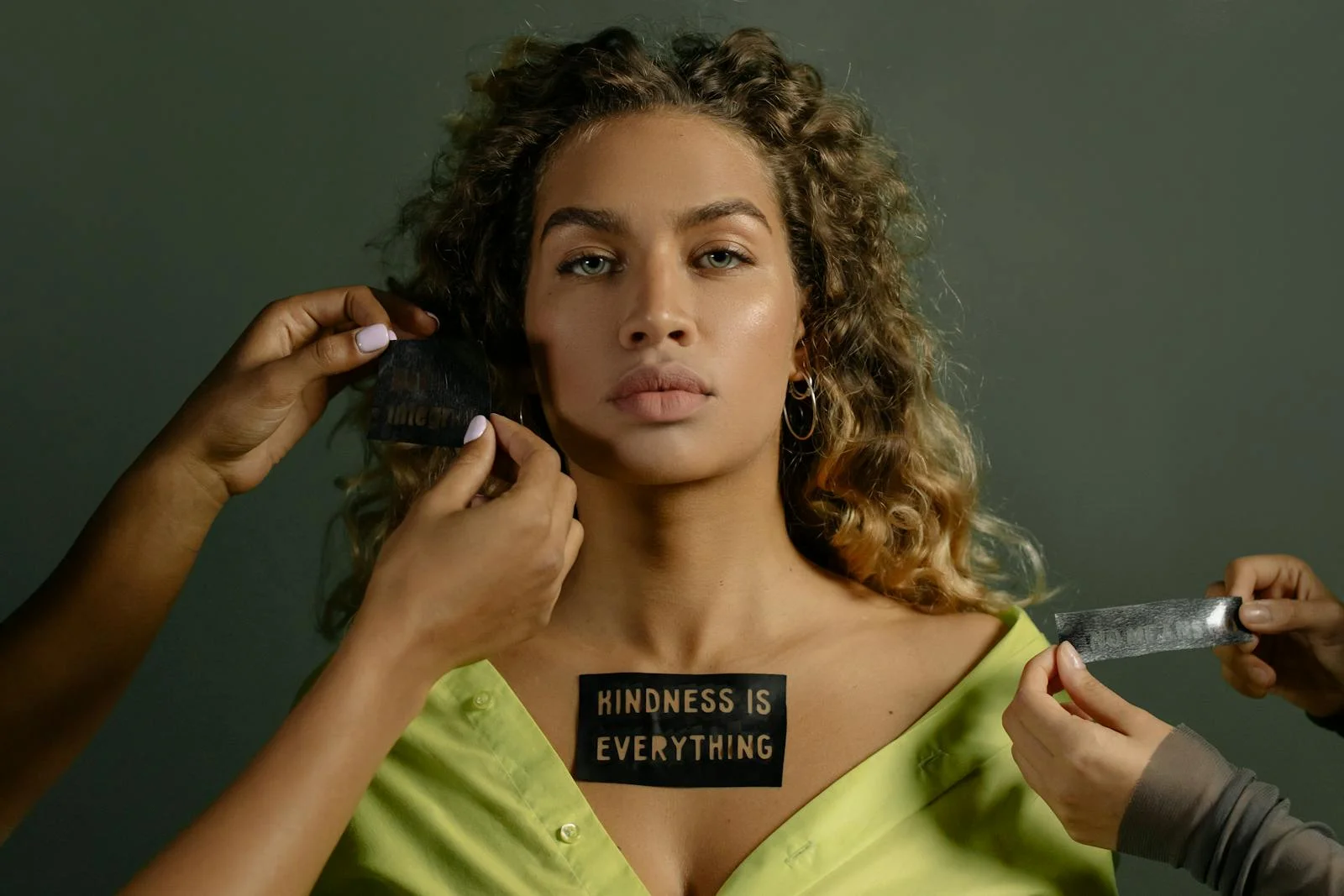
You’re walking through life wearing masks you don’t even realize you’ve put on, making decisions based on who you think you should be rather than who you actually are. I can tell you from years of coaching people through these moments—the questions that make you squirm are exactly the ones you need to answer. Most people spend decades avoiding the mirror of self-reflection, but these twenty questions will strip away every comfortable lie you’ve been telling yourself about your choices, relationships, and untapped potential.
What Would You Do if You Knew No One Would Judge Your Choices?
Peel away the layers of what others expect from you, and you’ll often discover dreams you’ve buried under years of seeking approval. I can tell you that most people live their entire lives performing for an invisible audience, making choices based on imagined criticism rather than genuine desire.
When you strip away the fear of judgment, everything changes. You might realize you’d rather start that unconventional business, move to a different country, or pursue a creative path everyone calls “impractical.” I’ve never seen someone regret following their authentic instincts, but I’ve watched countless people suffer from the slow burn of unfulfilled potential.
This question reveals your true priorities. It shows you where you’ve been playing it safe instead of playing to win. Living authentically through your ikigai naturally attracts the right people while helping you build meaningful community around who you truly are, rather than who you think you should be.
Which Childhood Dream Did You Abandon That Still Whispers to You?

Sometimes the scariest question isn’t about judgment from others, but about the promises you made to yourself as a child. That dream you buried under “practical” decisions still pulses beneath your ambitions, doesn’t it?
I can tell you from watching countless powerful people that your abandoned childhood dreams aren’t naive fantasies—they’re your authentic blueprint. The kid who wanted to be an inventor, artist, or explorer knew something your adult brain forgot: what truly energizes you.
I’ve never seen anyone reach their full potential while ignoring that persistent whisper. Sure, you might’ve been told writing was impractical or music wouldn’t pay bills, but those dreams reveal your core strengths and natural talents. They’re not asking you to abandon everything—they’re asking for integration, for honoring the vision that shaped you.
These childhood dreams often emerge when you consider what you’d pursue if money wasn’t a factor—teaching, creating art, or starting that nonprofit you sketched in your notebook years ago all point toward your authentic passions and true calling.
What Belief About Yourself Are You Most Afraid to Question?
Deep beneath your carefully constructed identity lies a belief so fundamental that questioning it feels like standing at the edge of a cliff. I can tell you from years of watching high achievers, the most dangerous beliefs are often disguised as strengths.
Maybe you believe you’re “not smart enough” for bigger opportunities, so you sabotage yourself before anyone else can. Or perhaps you’ve convinced yourself that you’re “too ambitious” and need to tone it down to be liked.
I’ve never seen someone reveal their true potential without first dismantling the lie they’ve been telling themselves for decades. That belief you’re protecting isn’t keeping you safe—it’s keeping you small. Question it now, because your future depends on what’s waiting on the other side.
The courage to examine these deep-seated beliefs through regular self-reflection has been directly linked to higher rates of goal achievement and authentic self-discovery.
When Do You Feel Most Like the Person You’re Meant to Be?
After years of questioning what holds you back, you need to identify the moments when you’re already breaking through. I can tell you that recognizing these peak moments isn’t just feel-good reflection—it’s strategic intelligence about your authentic self.
Pay attention to when you feel completely aligned, energized, and unstoppable. These aren’t random occurrences; they’re clues to your core design.
Those unstoppable moments aren’t accidents—they’re your authentic self breaking through, revealing the blueprint of who you’re designed to be.
- When you’re solving problems others can’t crack
- When you’re creating something that didn’t exist before
- When you’re leading others through uncertainty with confidence
I’ve never seen someone achieve lasting power without understanding their natural operating system first. You can’t fake authenticity at scale, and you can’t sustain success by pretending to be someone else. Those breakthrough moments reveal who you’re meant to be.
The reticular activating system in your brain is already filtering information to highlight opportunities that align with these authentic moments—you just need to become conscious of the pattern.
What Pattern Keeps Showing up in Your Relationships That You Refuse to Acknowledge?

While you’ve been analyzing everyone else’s behavior in your relationships, you’ve missed the one constant factor that appears in every single connection you make: you. I can tell you from working with thousands of people, there’s always a pattern you’re blind to because you’re living inside it.
Maybe you attract partners who need fixing, then feel drained when they can’t change. Perhaps you withdraw when things get intimate, then wonder why people seem distant. Or you give everything upfront, then resent others for not matching your intensity.
Your attachment style directly influences these patterns by drawing you toward specific types of partners who recreate familiar relationship dynamics.
I’ve never seen someone break through to their next level without facing their relationship pattern head-on. The pattern isn’t your fault, but continuing to ignore it absolutely is your choice.
If Your Life Ended Today, What Would You Regret Not Saying?
Your deathbed won’t care about the promotions you didn’t get or the money you didn’t make, but it will echo with every word you held back from the people who mattered most.
Your legacy isn’t built on achievements you accumulated, but on the love and truth you were brave enough to speak aloud.
I can tell you that successful people share one trait: they don’t let important conversations die in silence. They understand that unexpressed words carry more weight than missed opportunities.
Here’s what you’re likely avoiding:
- The “I love you” that feels too vulnerable – especially to family members you’ve grown distant from
- The apology that requires swallowing your pride – admitting fault when your ego screams otherwise
- The difficult truth that might hurt someone – but ultimately serves their growth
The weight of unspoken words creates emotional symptoms like irritability and loss of passion that compound over time.
I’ve never seen anyone on their deathbed wish they’d been more careful with their words. Stop protecting yourself from temporary discomfort while creating permanent regret.
What Are You Pretending Not to Know About Your Current Situation?
The most dangerous lies aren’t the ones we tell others—they’re the ones we tell ourselves. You already know your relationship is dying, your job drains your soul, or your business partner is stealing from you. But acknowledging these truths means you’d have to act, and action feels terrifying.
I can tell you from experience, the facts you’re avoiding are the ones holding you back from real power. That friend who always takes but never gives? You know they’re using you. That investment that feels too good to true? It probably is.
When you’re constantly seeking external validation instead of trusting your gut, you’re essentially asking everyone else to live your life for you. Stop playing dumb. Your intuition has been screaming the truth for months. The question isn’t what you don’t know—it’s what you’re refusing to admit you already know.
Which of Your Personality Traits Is Actually a Defense Mechanism in Disguise?
Once you start admitting uncomfortable truths about your external world, something even more unsettling emerges—you realize half of what you call your “personality” is just elaborate armor.
What you mistake for your core identity is often just sophisticated psychological camouflage protecting you from perceived threats.
I can tell you from experience, the traits you’re most proud of often mask your deepest fears. That perfectionism isn’t excellence—it’s terror of being seen as inadequate. Your independence isn’t strength—it’s fear of vulnerability.
Common disguises include:
- People-pleasing masquerading as kindness (really fear of rejection)
- Cynicism posing as wisdom (actually protection from disappointment)
- Workaholism dressed as ambition (truly avoidance of intimacy)
These emotional bodyguards were designed to protect you from pain, but they often end up limiting your growth and authentic connections with others.
I’ve never seen someone achieve real power without stripping away these false identities first. Your authentic self, flaws and all, commands more respect than any carefully constructed persona ever will.
What Would You Attempt if You Trusted Yourself Completely?
How brutally honest would your dreams become if self-doubt wasn’t whispering poison in your ear every morning? I can tell you from experience, complete self-trust unleashes a terrifying level of ambition. You’d quit that soul-crushing job tomorrow, launch the business that’s been burning in your chest, or finally have that conversation that could change everything.
Most people never attempt what they truly want because they’ve convinced themselves they’ll fail. But here’s what I’ve never seen: someone with genuine self-trust staying small. They don’t hedge their bets or create backup plans that become excuses. They commit fully, knowing that even failure teaches them something valuable.
Your real dreams aren’t the safe ones you share at dinner parties—they’re the ones that make your heart race. Dreams don’t lie like society does—they expose your genuine values, energizing factors, and what you’re truly willing to sacrifice for.
Who Were You Before the World Told You Who to Be?

Before society stuffed you into its prefabricated boxes, you’d instincts that ran deeper than logic. You moved through the world with unfiltered curiosity, drew boundaries without guilt, and spoke your truth without calculating the cost. I can tell you from experience, those early impulses weren’t childish—they were your authentic blueprint.
The world’s expectations slowly rewrote your operating system:
- You learned to shrink your dreams to fit others’ comfort zones
- You traded your natural confidence for socially acceptable modesty
- You buried your authentic voice under layers of people-pleasing
I’ve never seen someone reclaim real power without first excavating who they were before the conditioning took hold. That original version of you? She’s still there, waiting to be recollected, not rebuilt.
What Story Do You Tell Yourself to Avoid Taking Responsibility?
You dress up your excuses in sophisticated clothing, but underneath they’re still just fear wearing a tuxedo. I can tell you from experience, the stories we craft to dodge responsibility are masterpieces of self-deception. You blame your childhood, your boss, the economy, bad timing. You say you’re “waiting for the right moment” or “need more resources.” These narratives sound reasonable, even logical.
But here’s what I’ve never seen: someone achieve real power while hiding behind victim stories. The market doesn’t care about your past trauma. Your goals don’t adjust themselves to accommodate your fears. Every minute you spend perfecting your excuse is a minute stolen from building your empire.
The most successful people I know stopped asking “Why me?” and started asking “What now?” When you find yourself cycling through the same justifications week after week, experiencing that familiar Sunday night dread about facing another week of unchanged circumstances, that’s your signal that the story has become more important to you than the solution.
Which Emotion Are You Most Uncomfortable Experiencing and Why?
Most people run from discomfort like it’s radioactive, but the emotions you avoid most reveal exactly where your power is hiding.
I can tell you that your biggest emotional blind spot is always your greatest weakness. The emotion you dodge constantly becomes the one that controls you completely. When you’re uncomfortable with anger, you become a doormat. When you fear sadness, you make terrible decisions to avoid it.
Your avoidance pattern shows you exactly what you need to master:
- Anger avoidance creates boundary issues and resentment
- Fear avoidance leads to missed opportunities and regret
- Sadness avoidance prevents genuine connection and healing
I’ve never seen someone gain real power without facing their most uncomfortable emotion head-on. Stop running from what makes you squirm, start learning from it.
What Would Change if You Stopped Seeking Approval From Others?
Approval addiction turns grown adults into performing monkeys, dancing frantically for scraps of validation from people whose opinions shouldn’t matter.
I can tell you, the moment you stop this exhausting performance, everything shifts. Your decisions become yours again. You’ll speak your truth instead of crafting responses designed to please. Your energy returns because you’re not constantly monitoring others’ reactions, adjusting your behavior like a desperate people-pleaser.
I’ve never seen someone regret breaking free from approval-seeking. You’ll attract genuine relationships instead of transactional ones. Your self-respect grows when you stop betraying your values for acceptance.
You’ll take risks, pursue goals that matter to you, not what looks impressive to others. The irony? People respect you more when you stop begging for their respect.
What Part of Your Identity Are You Desperately Clinging to That No Longer Serves You?
Like a snake refusing to shed its skin, we cling to outdated versions of ourselves long after they’ve become suffocating prisons. I can tell you from experience that your old identity might be your biggest obstacle to power.
You’re holding onto pieces of yourself that once served a purpose but now drain your energy. I’ve never seen anyone achieve true influence while carrying dead weight from their past self.
Consider what you’re clinging to:
- The victim story that once protected you but now keeps you powerless
- The perfectionist mask that earned approval but paralyzes your progress
- The people-pleaser role that avoided conflict but destroyed your authority
Your outdated identity isn’t just harmless nostalgia, it’s actively sabotaging your potential. Real power requires ruthless self-evolution.
If You Couldn’t Fail, What Conversation Would You Have Tomorrow?
While you’re busy crafting the perfect words for some distant future, the conversation that could change everything sits waiting in tomorrow’s silence.
I can tell you that fear of failure keeps more powerful conversations locked away than any other force. You know exactly which conversation I’m talking about – the one that makes your stomach tighten when you imagine it happening.
Maybe it’s telling your boss you deserve that promotion, confronting a toxic relationship, or pitching that business idea that’s been haunting you. I’ve never seen anyone regret having the conversation they feared; I’ve only seen them regret waiting.
Remove failure from the equation, and suddenly the path becomes crystal clear. That conversation isn’t tomorrow’s problem – it’s tomorrow’s opportunity.
What Truth About Your Desires Are You Hiding From Yourself?
How often do you catch yourself saying “I don’t really want that anyway” right after something doesn’t work out? You’re lying to yourself, and deep down, you know it. I can tell you that self-deception around desires kills more dreams than failure ever could.
You rationalize away what you truly want because wanting something means risking disappointment. But here’s what I’ve learned: buried desires don’t disappear, they poison your decision-making from the shadows.
The truths you’re likely hiding:
- You want recognition and status more than you admit
- You crave deeper intimacy but fear vulnerability
- You desire control over outcomes you can’t actually control
Stop pretending indifference protects you. It doesn’t. It just keeps you from pursuing what would actually fulfill you.
Which of Your Strengths Have You Been Treating as Weaknesses?
Three times this week, I watched someone apologize for being “too analytical” during a brainstorming session. I can tell you, that’s exactly the backwards thinking that keeps people powerless.
Your analytical nature isn’t a flaw—it’s your superpower. You see patterns others miss, spot problems before they explode, make decisions based on facts instead of feelings. Yet you’ve been trained to apologize for it.
I’ve never seen someone succeed by diminishing their natural talents. Your sensitivity isn’t weakness, it’s emotional intelligence. Your stubbornness isn’t inflexibility, it’s determination. Your perfectionism isn’t neurosis, it’s having standards.
Stop shrinking your strengths to fit into spaces designed for mediocrity. The world needs what you naturally bring, not some watered-down version.
What Would You Do Differently if You Valued Your Time as Much as Your Money?

Speaking of recognizing what you truly value, let me ask you something that’ll make you uncomfortable: you track every dollar but treat your hours like they’re unlimited.
I can tell you from experience, powerful people guard their time more fiercely than their bank accounts. They understand something most don’t—time’s the only currency you can’t earn back.
If you truly valued your time like money, you’d:
- Stop attending meetings without clear agendas because you wouldn’t waste $500 of your hourly rate on pointless discussions
- Outsource tasks below your pay grade instead of doing $15/hour work when you’re worth $150
- Say no to commitments that don’t align with your goals
I’ve never seen someone achieve real power while squandering their most precious resource.
What Aspect of Your Past Self Do You Need to Forgive to Move Forward?
Until you make peace with your past mistakes, you’ll keep sabotaging your future success. I can tell you from experience, self-forgiveness isn’t about making excuses—it’s about accepting responsibility without the crushing weight of shame.
Self-forgiveness means taking responsibility for your mistakes without drowning in shame that sabotages your future potential.
Maybe you need to forgive yourself for staying in that dead-end job too long, for trusting the wrong people, or for playing it safe when you should’ve taken risks. I’ve never seen anyone build real power while carrying decades of self-hatred.
Your past decisions made sense with the information you’d then. Stop punishing yourself for not knowing what you couldn’t have known. The version of you that made those choices was doing their best with limited resources, experience, and perspective.
Forgive them so you can finally unleash liberate your potential.
If You Met Yourself as a Stranger, Would You Want to Be Friends?
Once you’ve cleared the debris of self-forgiveness, you can finally see yourself clearly—and that’s when this uncomfortable question hits. I can tell you, most people squirm when they honestly assess their own company. Would you genuinely enjoy spending time with yourself?
This isn’t about self-love platitudes. It’s about raw evaluation of your character, energy, and presence. I’ve never seen someone achieve lasting power without first becoming someone they’d respect meeting.
Consider these brutal truths:
- Do you complain constantly or solve problems?
- Are you interesting to talk to, or do you drain conversations?
- Would you trust yourself with important matters?
If the answer’s no, you’ve identified your growth targets. You can’t lead others effectively until you’d choose your own company.
Conclusion
You’ve got the questions, but here’s what I can tell you from experience: asking them isn’t enough. You need to sit with the uncomfortable answers, write them down, and actually act on what you discover. I’ve seen too many people treat self-discovery like entertainment instead of transformation. These questions will only change how you see everything if you’re brave enough to change what you’re doing with your life afterward.





Leave a Reply